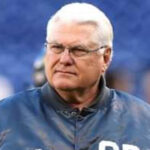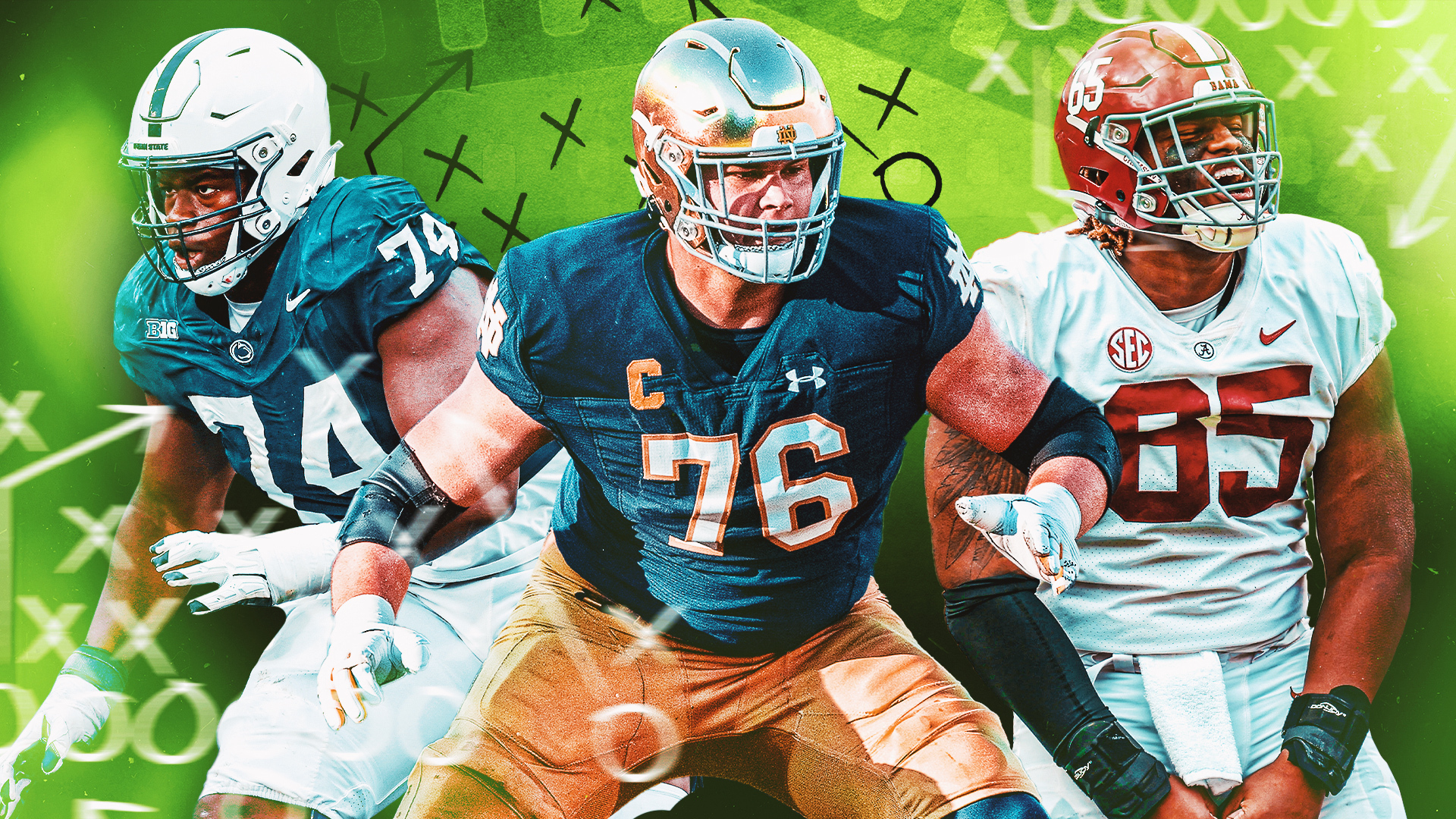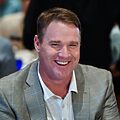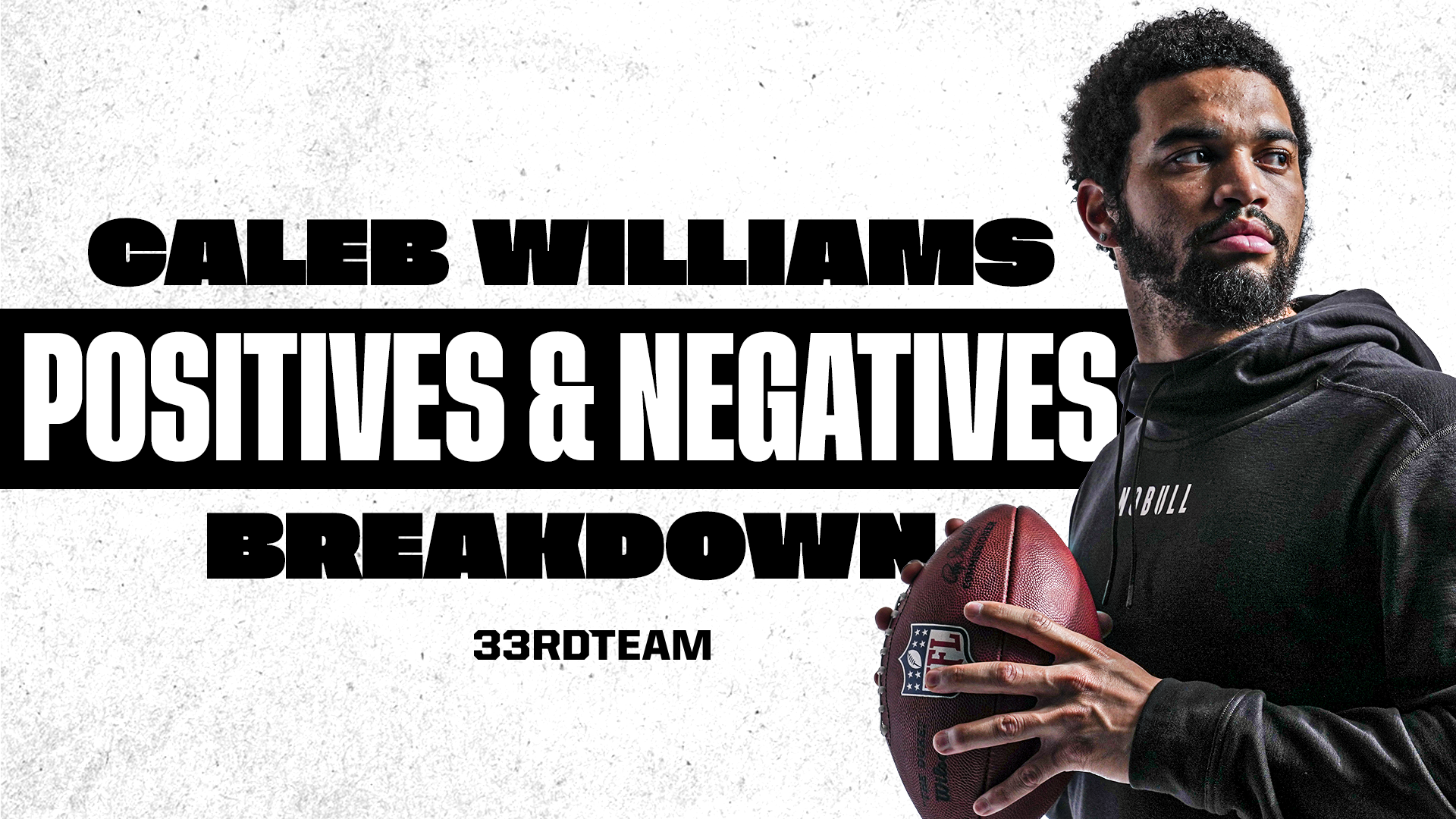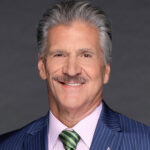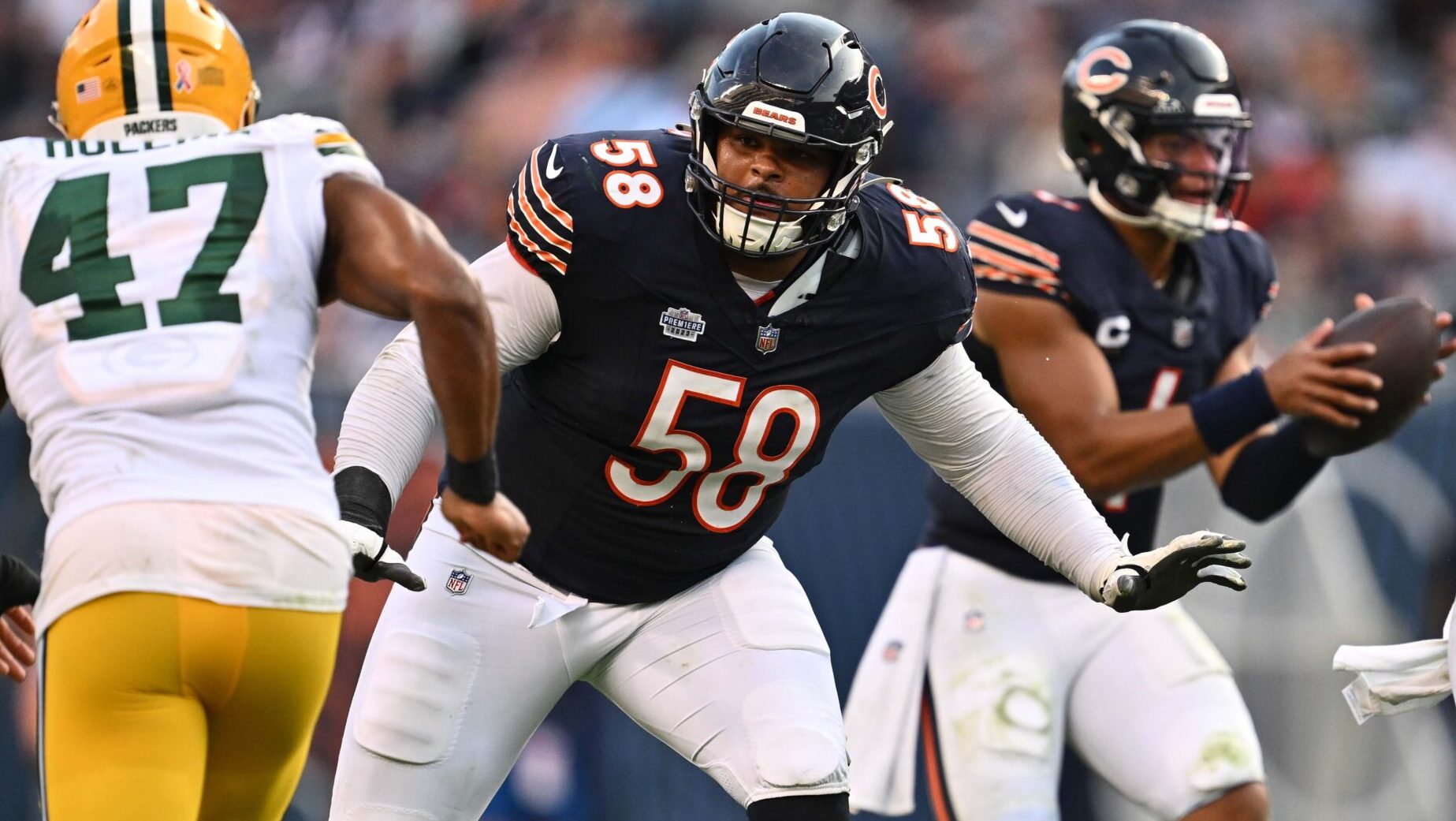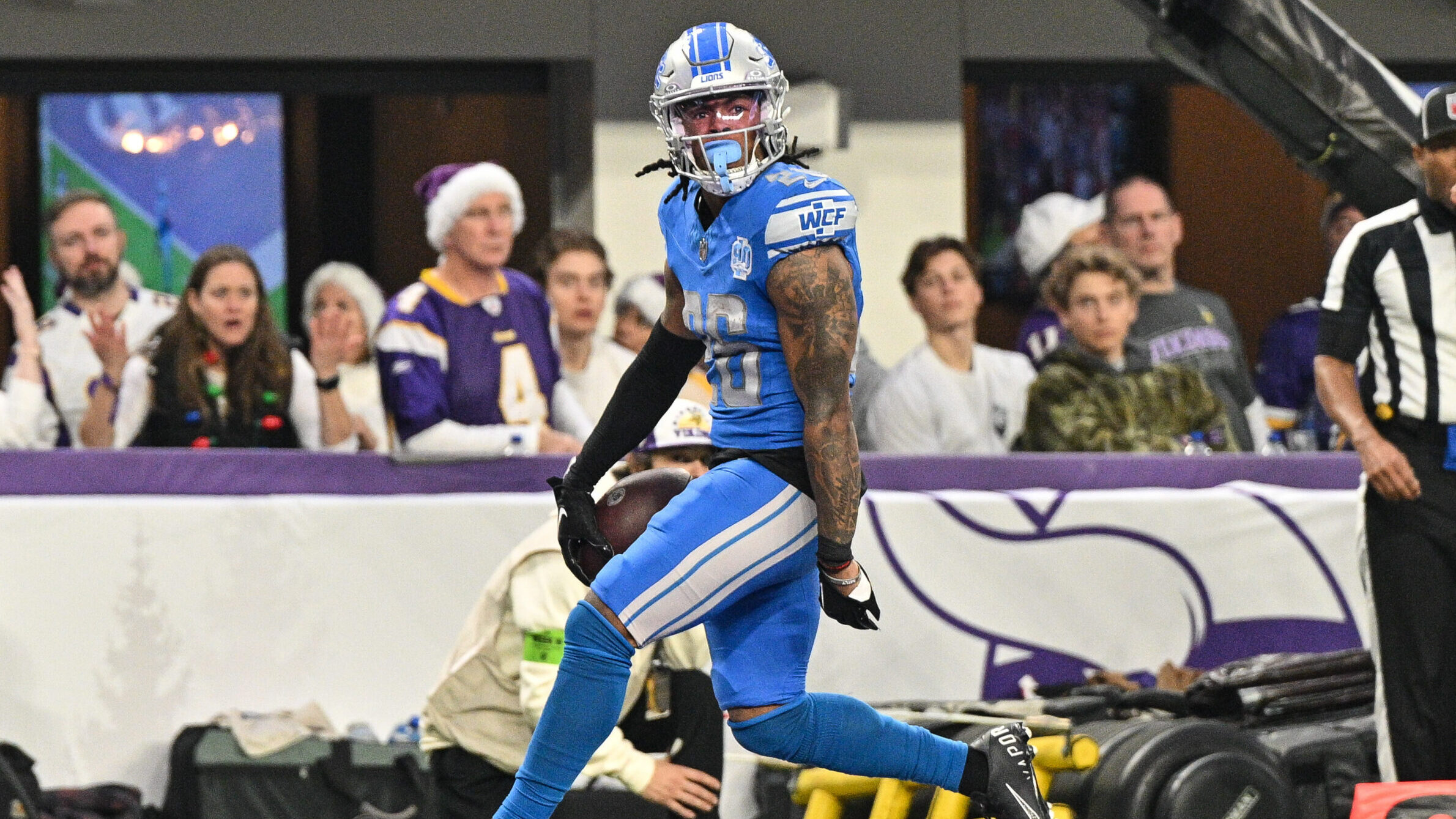Analysis
5/7/22
9 min read
Charles Davis and Jeff Saturday on What It's Like To Be an Undrafted Free Agent
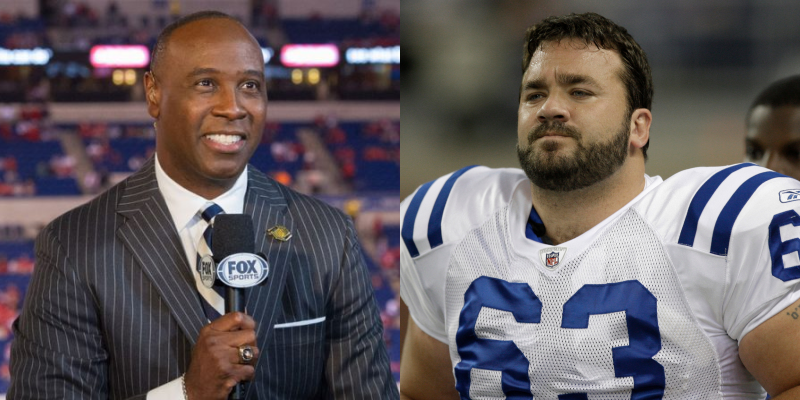
Undrafted free agency, although without the glitz and glamor of draft weekend, is still an irreplaceable source of NFL talent and a vital piece of the NFL’s induction process. Undrafted free agents continue to impact the game, too. James Robinson is the NFL’s most recent example of an undrafted free agent springing into an impact role. Robinson broke the NFL record for most scrimmage yards by a rookie undrafted free agent just two season ago. The true impact of undrafted free agents on the state of the game is most accurately indicated by a recent 33rd Team graphic in our 2022 NFL Undrafted Free Agency Tracker.
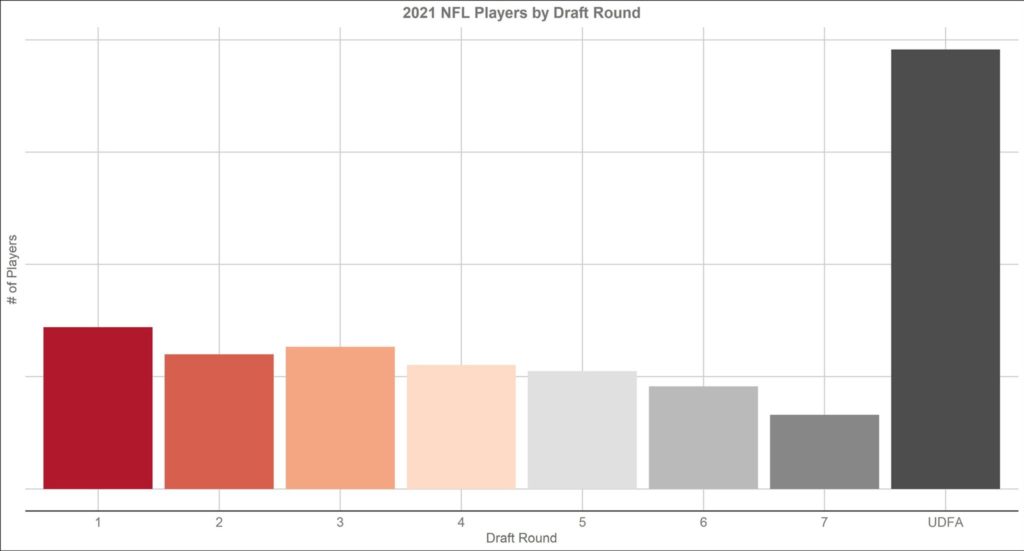
Quietly, undrafted free agents nearly outnumber their drafted contemporaries. It begs the question, “how does that ostensibly rare path to success unwind?” Former Tennessee Volunteers defensive back and current CBS NFL Analyst Charles Davis and former All-Pro and Super-Bowl Champion center Jeff Saturday shared their experiences with the 33rd Team.
For Davis, failing to hear his name called in what was then a 12-round draft was demoralizing.
“I'd had shoulder issues in college. I knew that that would be a factor,” said Davis. “But I remember going through the process still thinking I'd be drafted.”
Some teams had expressed interest in drafting Davis, namely the Dallas Cowboys, but he did not hear his name called in 1987.
“There was a heck of a lot of disappointment that night, you know, I'm human,” said Davis. “the disappointment outweighed my mental preparation and that's the thing I tell these youngsters all the time now.”
Ultimately, the Cowboys gave Davis a chance to earn a roster spot following the draft.
“I came in physically ready to go to Dallas. That was not an issue. I did not fail any running tests. I was in shape,” said Davis. “I allowed my disappointment to be the belief. ‘Oh, well, I didn't get drafted, must not be that good’ [I thought to myself], and that was a major mistake.”
Just as in any other aspect of our lives, half of the battle occurs inside your head.
“I try and tell all the youngsters, ‘do not let that creep in,’” said Davis.
Easier said than done, of course. Nonetheless, Davis emphasized that there are plenty of undrafted players that make a meaningful impact on a given roster each and every year.
“I do not have to show them guys who went to the Hall of Fame,” said Davis. “I have to show them Pro Bowl guys or a bunch of guys on every roster — undrafted free agents who contribute and play who have a career. That is where I made my mistake.”
According to Davis, what it comes down to is how you handle adversity.
“You can have some disappointments in your life. How are you going to handle it? How are you going to bounce back?” said Davis. “I am firmly convinced that when they close the lid on my coffin, the last thought I will have is ‘darn it I did not give it my best shot turnout for Dallas.’”
Davis largely attributes his grit and determination to that experience. Without it, he may not have enjoyed as much success as he has in the broadcast booth. Now, Davis attacks each day with a mantra, “you may work as hard as me, but you are not going to out-work me.
“Who knows whether I would have made it, not made it, been a star, not been a star, there's no telling,” Davis continued, “All I know is I didn't give myself my best shot.”
According to Davis, “the bottom line is you want to walk away feeling like you gave it your best shot.” He articulated that when push comes to shove, how are you going to respond?
“Are you going to turn what appears to be the biggest disappointment in your life at that time, [into an opportunity?]” he said, “And instead of facing it head on, I hung my head. Big mistake.”
Former Colts offensive lineman, All-Pro, and Super Bowl Champion Jeff Saturday shared his transition from college football in the NFL. It was a different, yet similarly tumultuous experience.
Saturday played in the ACC with the North Carolina Tar Heels, garnering First-Team All-ACC honors before entering his senior season.
“I go back to my senior year and play and think everything's going to be great,” said Saturday. “Everything was going well until the combine, and I was not invited to the Senior Bowl. That probably should have been a big telltale.”
The combine proved to be a harrowing experience for Saturday.
“I go up to the stage and I stand on and they measure my arms,” said Saturday. “I remember everybody looking up and then looking down and starting to write stuff down — I was like, ‘that is not a good sign.
“I think I went into the draft as the third highest [ranked] center and I came out of the draft as like the 10th highest,” said Saturday.
As Draft Day began for Saturday and his family, he reasonably believed he would hear his name called.
“I go through the draft and teams started calling me on the second day and telling me I was going to be the next pick,” said Saturday. “Unfortunately, none of those happened.”
Saturday felt left without an allegiance after the draft ended that year. However, “the Baltimore Ravens called me a day after the draft, but they had a franchise player at center.
“They said ‘Hey, would you come down and do OTAs and training camp. we are going to give you a shot.' I am all kinds of fired up and I go to Baltimore.”
Things changed once Saturday walked into the locker room, though.
“I can tell you this, the feeling of my stomach sank. I walked in and it was Zeus [Orlando Brown], Jonathan Ogden, Jeff Blackshear. These players, let us just say from a height perspective, I did not reach the shoulders of any of these guys," Saturday chuckled. “I know I'm a bush amongst trees. This is not going to be positive.”
Still, Saturday gave himself the best shot he could during OTAs.
“You know, I go through some OTAs and I am practicing pretty well,” he said. “[A coach for the Ravens at the time] looks at me and says, ‘Man, you are going to have a great career in the NFL. I love your feel for the game.'
“Literally the next day they cut me.”
Following Saturday’s short stint with the Ravens, he made do selling electrical supplies.
“I am out of the NFL for a year and my roommate Nate Hobgood-Chittick gets pulled up from the Giants’ practice squad to the Colts,” said Saturday, “[Chittick] goes in and talks to Bill Polian and says, ‘I have played against four NFL centers and my roommate is better. Will you give him a chance?'”
Next thing Saturday knew, he was answering a call from Chris Polian in his cubby at an electric supply company in Raleigh.
“[Polian] calls and asks, 'What do you weigh?'" said Saturday. “I am about 290 pounds.”
Polian kept it real with Saturday, saying, “You do not pass the eyeball test, but we are going to give you a shot to come in here.”
That was more than enough for the future All Pro, who relished the opportunity to have a shot with a top-notch organization.
“I realized how big of a difference being in the right place makes,” said Saturday, “You know, with people who are looking for your size, your strength, all of those kinds of things.”
As his time with the team continued, the late Howard Mudd and former Colts offensive line coach told him, “I want you to fist fight until the whistle blows. If you do exactly what I say and how I say it, I will give you every opportunity to make this football team.”
Saturday took that message to heart, and follow Mudd's advice is exactly what he did. That experience enlightened Saturday on what kind of work and work ethic the NFL requires for success.
“I tell every [guy I talk to], ‘Man, do your homework. Find out who the best positional guys are at your position. Find out how often these general managers keep undrafted free agents over low round draft picks,’” said Saturday.
In the end, the Colts decided to keep Saturday aboard long-term; a decision that aged well.
“Thank goodness the Polians were willing to take a chance and let some of the guys they had drafted over me go, because they said, ‘Hey, you know, this kid is better,’” said Saturday. “Not every GM was willing to do that.”
An interesting perspective that Saturday shared was the freedom UDFAs had compared to traditional draft selections.
“If you get drafted, you have no option,” said Saturday, "But, if you are undrafted, at least you have some steering mechanism.”
Landing spot is often overlooked, yet vastly significant in the world of football. “Really do your due diligence; know where you are going,” Saturday suggests.
In the end, franchises want to build an identity: a way of doing things.
“I was there to mentor young guys and would tell them, ‘You have to do it their way and at least if you lose doing it their way, they will give you the benefit of the doubt,” said Saturday. “Because if they have drafted a kid or a kid is doing it the way they asked and you are not, you are not going to get that same benefit.
“That is the way that I took my whole career. I grabbed that sucker by the throat, and you had to beat me with a bat to be done.”
This type of mentality was expressly regarded as a common characteristic among successful undrafted free agents in an interview with former Saints GM and Executive of the Year, Randy Mueller.
This tremendous sharing of two stories truly illuminates what it is like to take the road less traveled, or rather the road less covered by media. It comes down to a mentality that the evaluators are wrong, and that “you,” the player, really belongs.
Eloquently put by Davis, “They [Successful UDFAs] just figure every one of us who evaluated made a mistake, not them and they move on."
As this year progresses, and we begin to hear and read reports coming out of camps across the country, we might get a better idea who the next era of undrafted stars will be. Surely, by this time next year, another iteration of “surprise” free agent contributors will not be surprising themselves.

